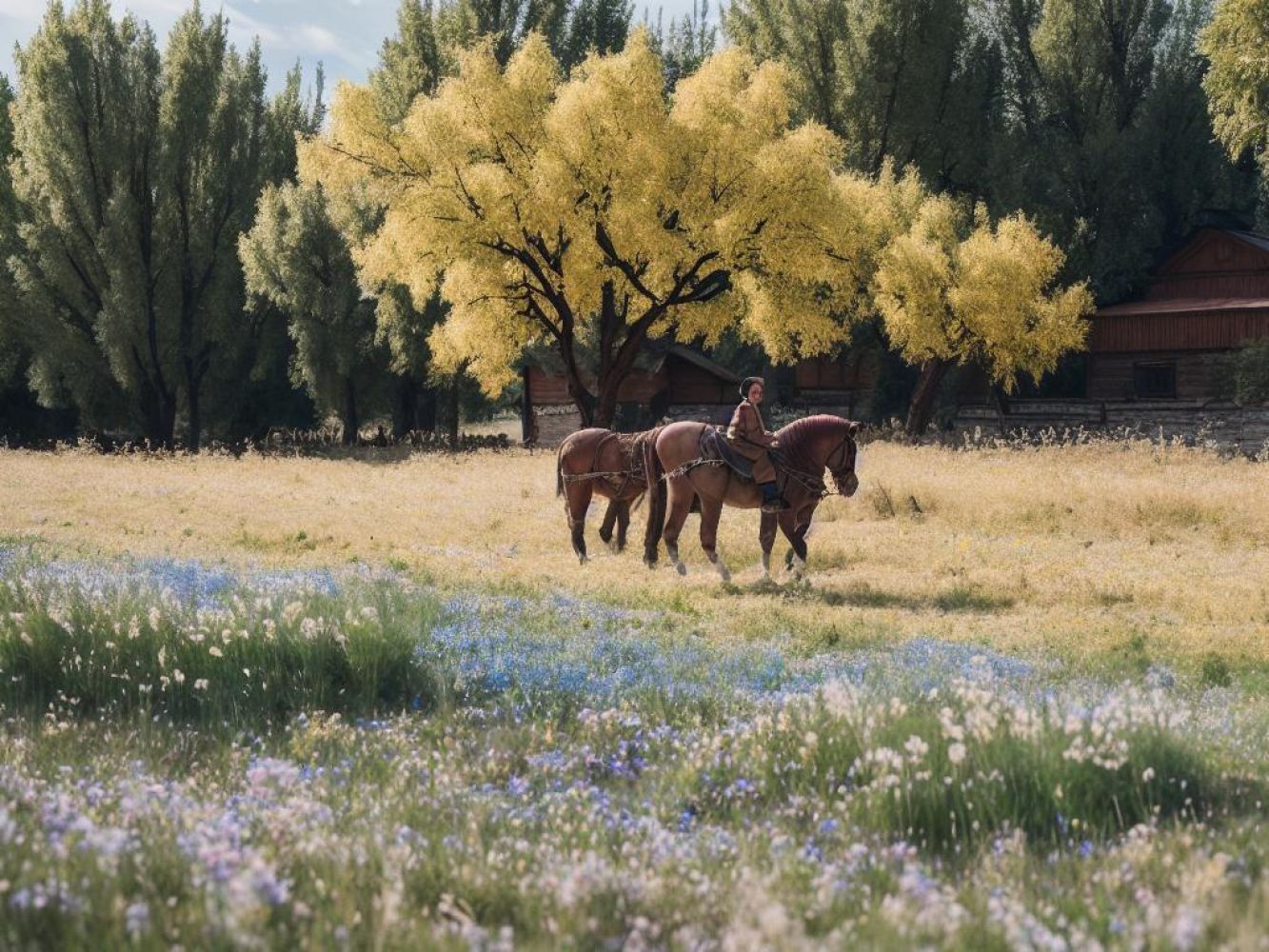Understand
Arslanbob, nestled at an altitude of approximately 1400m, is a place that exudes natural beauty and an intriguing blend of cultures. This village, home to around 16,000 Uzbek-speaking inhabitants, holds onto its traditions tightly, making it a conservative and authentic destination. The locals proudly wear their traditional dresses, showcasing their deep-rooted heritage. Visitors are kindly requested to respect their customs and dress appropriately, both on the streets and in homestays. Just beyond the village lies the breathtaking world's largest walnut forest, spanning a staggering 60,000 hectares. These ancient trees, some nearing the impressive age of 1000 years, create a mesmerizing landscape that is truly awe-inspiring. Every autumn, the villagers embark on a pilgrimage to the forest, harvesting around 1,500 tons of walnuts. This tradition is a testament to the deep connection between the local community and the rich natural resources surrounding them. Legends and folklore surround the walnut forest, adding a touch of enchantment to this already captivating place. One story tells of a search for paradise, where an individual discovered the area of Arslanbob. However, the land lacked trees, prompting the prophet Muhammed to send a bag of seeds containing various fruit and walnut trees. The seeds were scattered by the wind, spreading over the entirety of Arslanbob, creating the majestic forest we see today. Another legend links Arslanbob to the great conqueror Alexander the Great, who halted his conquest nearby due to the illness of his soldiers. The villagers offered them walnuts, which aided in their recovery. As a gesture of gratitude, Alexander brought back nuts and seedlings to Greece, where he planted the first walnut trees in Europe. These Kyrgyz mountains walnuts are now renowned as "Greek nuts" throughout Europe. The village itself takes its name from Salman Farsi, a missionary revered as Arslanbob-Ata, meaning "Father of the lion gate" in Turkic language. Salman Farsi played a significant role in introducing Islam to this region during the 11th century. Arslanbob-Ata's legacy lives on, and his name is deeply intertwined with the spirit and history of the village. Arslanbob is a place of cultural significance, natural wonders, and heartwarming traditions. It invites you to immerse yourself in a world untouched by time and discover the secrets of this hidden gem in the heart of Kyrgyzstan.
Map & Climate
Map & Climate
Popular Foods
 Kyrgyzstan's national dish is called "Plov," also known as "Osh." It is a hearty traditional rice pilaf made with marinated beef, chickpeas, and various vegetables such as carrots, onions, and garlic. The ingredients are cooked together in a large pot until the rice is tender and fully absorbed the flavors of the other components. Plov is often served with additional meat on the side.
Kyrgyzstan's national dish is called "Plov," also known as "Osh." It is a hearty traditional rice pilaf made with marinated beef, chickpeas, and various vegetables such as carrots, onions, and garlic. The ingredients are cooked together in a large pot until the rice is tender and fully absorbed the flavors of the other components. Plov is often served with additional meat on the side. Another popular dish in Kyrgyzstan is "Kumis." This alcoholic beverage is made by fermenting horse milk and is typically consumed during special occasions or festivals. Kumis has a slightly sour taste and can vary in alcohol content depending on how long it has been fermented.
Another popular dish in Kyrgyzstan is "Kumis." This alcoholic beverage is made by fermenting horse milk and is typically consumed during special occasions or festivals. Kumis has a slightly sour taste and can vary in alcohol content depending on how long it has been fermented. A favorite snack among Kyrgyz people is "Et Uch", which translates to "raw meat salad." This dish consists of finely minced raw beef seasoned with spices such as garlic, onion, and pepper. The meat mixture is then accompanied by diced onions, tomatoes, and peppers, which provide a vibrant medley of colors and textures alongside the meat. Et Uch is traditionally eaten with a type of flatbread called "non."
A favorite snack among Kyrgyz people is "Et Uch", which translates to "raw meat salad." This dish consists of finely minced raw beef seasoned with spices such as garlic, onion, and pepper. The meat mixture is then accompanied by diced onions, tomatoes, and peppers, which provide a vibrant medley of colors and textures alongside the meat. Et Uch is traditionally eaten with a type of flatbread called "non."




Comments
NO COMMENTS